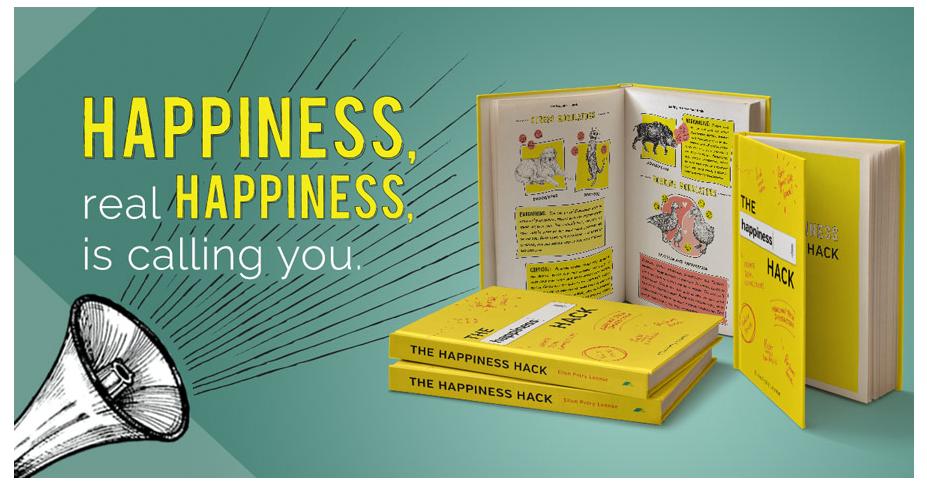Introduction
from The Happiness Hack
by Ellen Petry Leanse
A few years back, I faced some big questions and daunting struggles. No one would have guessed it: I hid my worries well. But something was off, and I felt alone in my questions. Looking around, it seemed other people had answers I simply couldn’t find. Watching them, I wondered what I was missing.
I didn’t know where to find answers. After all, these aren’t questions people bring up in casual conversation. Around me, it seemed, people were doing great—at least that’s what they told me. So I smiled harder and pretended it all made sense to me too.
I felt more than confused.
I felt alone.
When I talked with my doctor about my concerns, he shrugged, “Everyone feels this way.” Maybe he thought I’d find this revelation comforting. I didn’t. He talked about medications he usually prescribed when people said they felt this way.
“Really?” I wondered. “Is that the answer?”
Something inside told me there was another way. So I went looking for it. I opened my mind and challenged my assumptions. I read voraciously, took classes, and explored every path I could to learn how others answered life’s tough questions about meaning, purpose, and the pursuit of happiness. I looked to philosophy, modern and timeless wisdom, and science. I studied anthropology and religion. I explored real-life stories and tried to increase my self-expression and self-care.
Insights came slowly at first. But when I started learning about the brain, something clicked. For the first time, I saw patterns across the different paths to happiness—and even in my own experiences. With increasing clarity, I saw a new light. Neuroscience—the science of the brain—seemed to reveal some of the answers I was seeking. And the more I learned, the clearer those answers became.
Today, I still have questions. But they’re about what’s possible, not about what’s holding me back. As I’ve learned to work with my brain—and studied its role in shaping our life experiences—I’m happier. More energized. More curious, focused, and confident, beyond what I would have imagined a few years back. Nothing could have prepared me for the benefits I’ve received by learning to understand, and work in accord with, my brain.
As I’ve shared my learning with students and audiences in Silicon Valley and beyond, I see again and again how understanding the brain and working with it—in a word, being mindful—helps us do more of what satisfies us and less of what slows us down.
This book offers some of the frameworks that have helped me, and people I’ve worked with, find more purpose, clarity, and satisfaction. As I talk with people—all kinds of people, from different backgrounds and experiences, whether they’ve lived with ease or faced real hardship—their questions sound surprisingly like mine did ten years ago. My intention in writing this book is to offer you a shorter path than my process gave me. Navigating unknown terrain was hard, but now that I have a map, I want to share it.
Understanding the brain helps give you some control of it, at least some of the time, rather than simply letting it be in charge of you. Brain-aware thinking helps you take charge of an incredibly powerful tool, guiding you to new paths—to focus, a sense of purpose, and even happiness. As you’ll learn in the pages ahead, working with your brain gives you new ways to face life with clarity and resilience.

